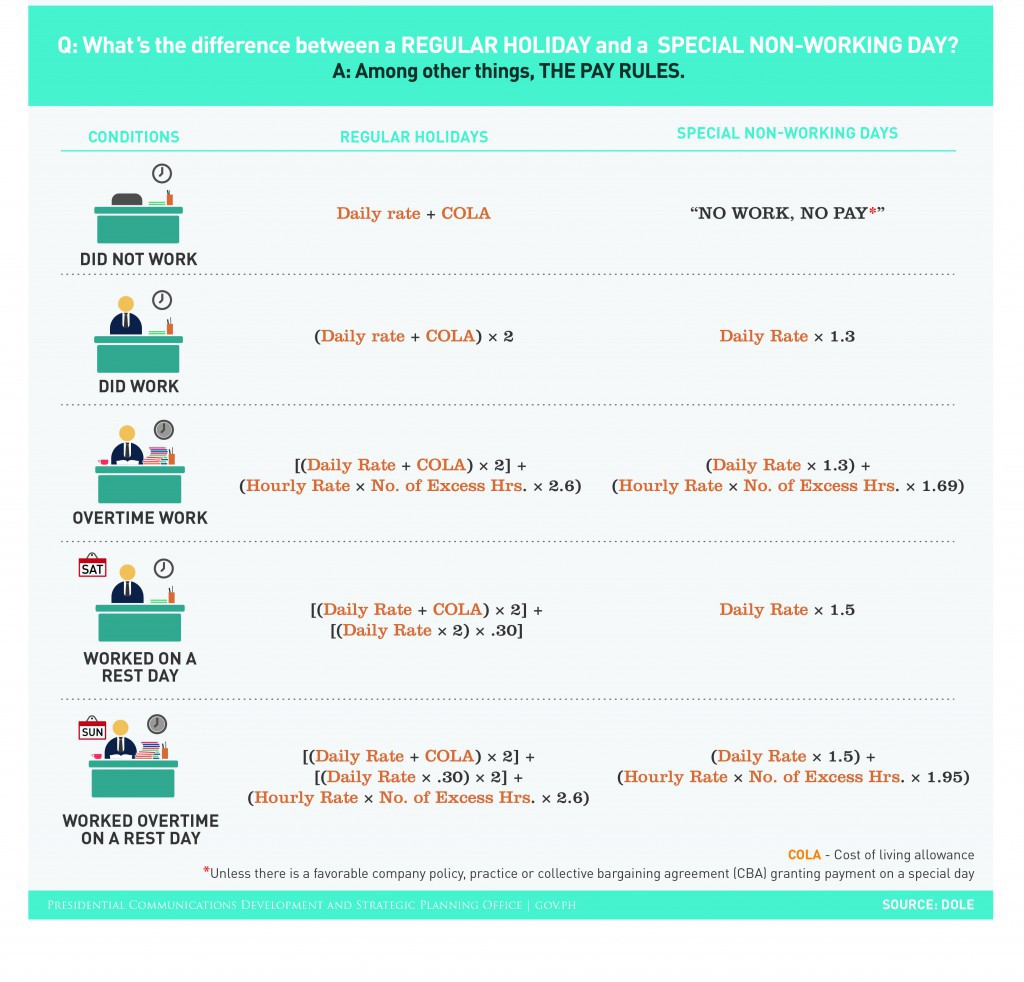Expats’ Guide to Holidays in the Philippines
Holidays are universally loved. They give families and friends a time to bond, as well as let workers and students get more much needed rest. However, expats are usually clueless as to how and when these holidays occur.
Here’s our guide to understanding holidays in the Philippines.
When are they announced?
Holidays in the Philippines are declared by virtue of a Presidential Proclamation. Not that they are required for regular holidays like Christmas or New Year’s Day, but special holidays, like Eid’l Fitr and town fiestas, require special proclamations from either the President or the Governor (if it’s a provincial holiday) or Mayor (if it’s a municipal/city holiday).
The proclamation comes out during the second half of the year, usually in July or August, depending on how busy the President is.
Regular Holidays are those that you don’t really need a notice for. They are celebrated either within the country or across the globe. Here’s the list of regular holidays:
January 1: New Year’s Day
Holy Week (Maundy Thursday, Good Friday, Black Saturday): Depends on Catholic calendar
April 9: Araw ng Kagitingan (Day of Valor)
May 1: Labor Day
June 12: Independence Day
Last Monday of August: National Heroes Day
November 30: Bonifacio Day
December 25: Christmas Day
Special Non-working holidays are those that either have to be declared beforehand or are waiting for an announcement from concerned groups. These are:
January 2: Additional Special non-working day
Chinese New Year: Depends on Chinese calendar
February 25: EDSA Revolution Anniversary
August 21: Ninoy Aquino Day
October 31: Additional special, non-working holiday
November 1: All Saints Day
December 24: Additional special, non-working holiday
December 31: Last day of the year

Why are they important
Apart from giving students and employees some much-needed rest, holidays also serve another purpose: salary. Working during a holiday may not feel good, but it does have its benefits when your pay check comes in… that is, if you’re an employee.
This is also where the two types of holidays kick in: the regular and the special non-working holiday. To keep things simple, there’s only one thing you need to remember: No Work, No Pay during Special Non-working Holidays.
For those who want to delve deeper, here’s an infographic courtesy of the Department of Labor and Employment:

HOLIDAY PAY MATRIX. So your boss can’t pull a fast one on you.
This pay matrix applies to everyone who works in the Philippines, with a few exceptions.
For updates on holiday announcements, make sure you follow @govph on Twitter.












